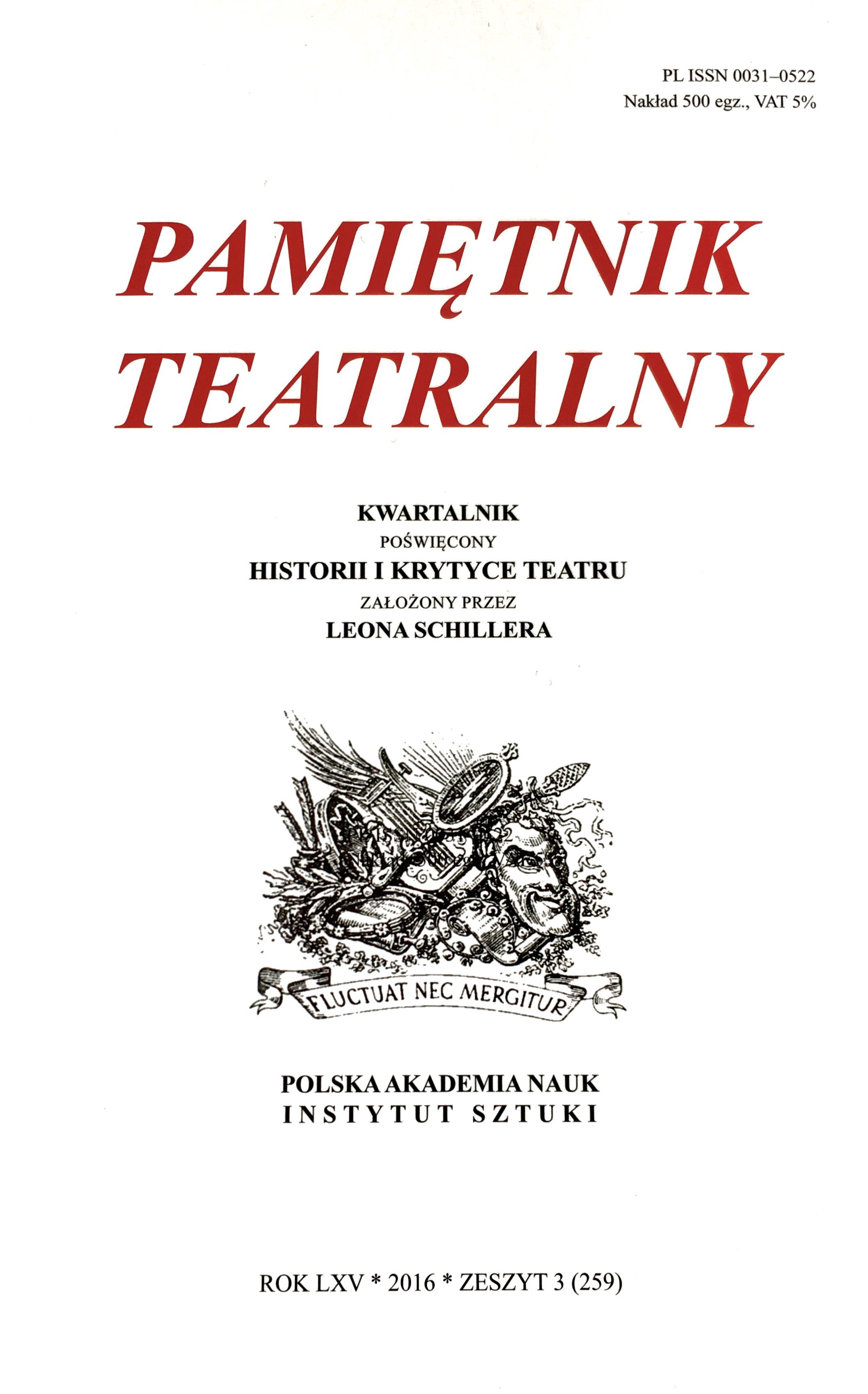Metateatralne finały Ibsena
Ibsen’s Metatheatrical Finales
Author(s): Ewa PartygaSubject(s): Theatre, Dance, Performing Arts
Published by: Instytut Sztuki Polskiej Akademii Nauk
Keywords: Ibsen;metatheatre;
Summary/Abstract: The article brings a comparative reading of the finales of three dramas by Henrik Ibsen: Rosmersholm (1886), Hedda Gabler (1890), and The Master Builder (1892). The metatheatrical techniques used by the dramatist in these three final scenes serve to problematize the situation of the spectators and the audience with their varied interpretative strategies. Death of the characters is presented in a metatheatrical frame that is constructed a little differently in each drama. The metatheatrical devices complement one another in order to underscore the power of perceptual schemas, to demonstrate the way they operate, and to suggest ways of undermining them. Ibsen does not, however, try to favour one interpretative strategy over any other; he encourages the audiences to take personal responsibility for the meaning of what they see. In all the plays under discussion, the scene of a play within a play involves an instance of repetition. For this reason, the proposed reading makes use of Kierkegaard’s concept of repetition, which enables one to comprehend the theatre as a place of expanding consciousness. Ibsen’s metatheatrical motifs reinforce this function of theatre, yet they also help us understand that both the meaning of a theatrical work or event and the process of its reception involve Kierkegaard’s dialectics of paradox.
Journal: Pamiętnik Teatralny
- Issue Year: 259/2016
- Issue No: 3
- Page Range: 117-134
- Page Count: 18
- Language: Polish

